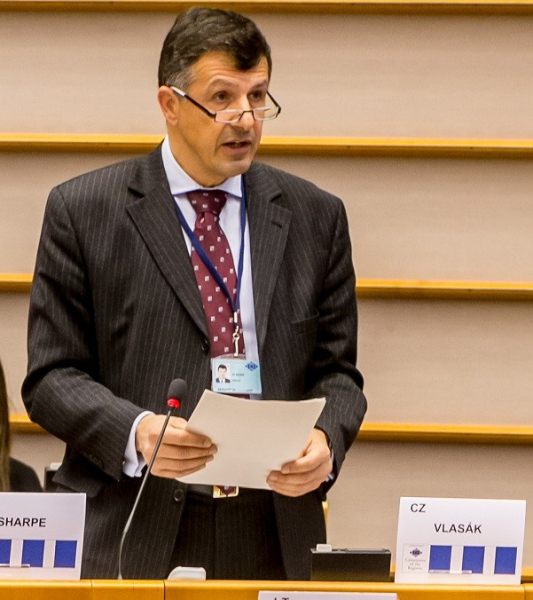
ECR Group Vice-President, Oldřich Vlasák (Councillor of the City of Hradec Králové in the Czech Republic) addressed European Commissioner Miguel Arias Cañete (responsible for Climate Action and Energy) during the CoR plenary session on 10 October. Speaking on behalf of the ECR Group, he made the case for a more bottom-up, realistic EU approach to environmental issues.
Mr Vlasák criticised the speech delivered recently by the French President at the Sorbonne University, in which Mr Macron called for more EU-wide rules on climate change and greater harmonisation of tax policies, including the carbon tax. "Let me say this clearly: creating a one-size-fits-all approach by giving new powers to Brussels in the field of climate change will not help our cities, regions or Member States to address this issue. Instead, it will lead to disproportionately higher energy bills in parts of Europe and therefore more euroscepticism in our local constituencies. It will also make our energy intensive industries less competitive," said the ECR Group Vice-President.
"Our Member States and local and regional authorities need the flexibility to adapt strategies to their local situation and assets. The principle of subsidiarity must be upheld. We hope that the calls by the Czech Chamber of Deputies and the Polish Senate in their reasoned opinions on the Clean Energy Package will be heard." Here, Mr Vlasák referred to the fact that these two parliamentary assemblies called for non-binding national contributions to the European renewable energy and energy efficiency targets.
"Secondly," continued Mr Vlasák, "we cannot push for ever-higher climate change targets without taking global activities into account. The EU is responsible for less than 10% of global CO2 emissions and this proportion is expected to further decrease in the coming years. It is obvious that to keep global temperatures from rising, we also need to look outside our borders. Climate diplomacy should become one of the top priorities for the European Commission. Let's cooperate more closely with our counterparts from Canada, the United States and the developing world. Let's also use city diplomacy which will make our national governments feel that they are falling behind and spur them on to be more ambitious and establish more effective partnerships."

